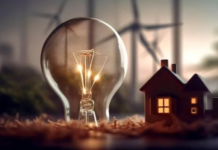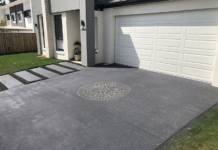As winter approaches, a reliable heating system becomes paramount for a warm and cozy home. But even the most dependable heaters can experience occasional hiccups. Here’s a guide to identify common heater problems and troubleshoot potential solutions before you reach for the phone to call a technician.
Diagnosing Common Issues
A malfunctioning heater can leave you feeling cold and frustrated. Here are some common problems and potential solutions to get your heat back up and running:
- Thermostat Troubles: This is often the culprit behind a cold house. Check if your thermostat is set to “heat” mode and the desired temperature is higher than the current room temperature.
- Dirty Air Filter: A clogged air filter restricts airflow across the furnace heat exchanger, reducing heating efficiency and potentially causing the system to overheat and shut down. Regular heater maintenance, including replacing air filters according to the manufacturer’s recommendations (typically monthly during peak season), can prevent this issue.
- Pilot Light Woes (Gas Furnaces): In gas furnaces, a pilot light ignites the main burner. If the pilot light is extinguished, there will be no heat. Check your furnace’s manual for specific instructions on relighting the pilot light. However, if you’re uncomfortable with this process, consult a qualified technician.
- Fuel Supply Issues (Gas Furnaces): If your gas furnace isn’t receiving fuel, it won’t generate heat. Check if the gas supply valve is open. In some cases, low gas pressure could be the culprit. If you suspect a gas supply issue, it’s crucial to call a qualified technician to avoid potential safety hazards.
- Tripped Circuit Breaker (Electric Furnaces): An overloaded circuit can trip the breaker, shutting off power to your furnace. Check your home’s breaker box and reset the tripped breaker if necessary. However, if the breaker trips repeatedly, consult an electrician to identify the underlying cause of the overload.
Seeking Professional Help
If troubleshooting doesn’t resolve the issue, or if you’re uncomfortable with any aspect of the process, don’t hesitate to call a qualified HVAC technician for home plumbing. Here’s why seeking professional help is crucial:
- Safety First: Gas leaks, electrical issues, and potential carbon monoxide concerns can all arise with heater malfunctions. Qualified technicians are trained to safely diagnose and address these issues.
- Accurate Diagnosis: Professionals possess the expertise to pinpoint the root cause of the problem and recommend the most appropriate solution, saving you time and money on unnecessary repairs.
- Complex Repairs: Fixing certain components or replacing failing parts often requires specialized tools and expertise. Qualified technicians have the experience and equipment to handle these complex repairs.
The Importance of Heater Maintenance
Regular heater maintenance is an investment that can save you money and frustration in the long run. Here’s how:
- Preventative Measures: A qualified technician can clean your furnace, check for potential problems, and ensure your system operates efficiently.
- Extended Lifespan: Regular maintenance helps extend the lifespan of your heating system, delaying the need for costly replacements.
- Improved Efficiency: A well-maintained heater operates more efficiently, potentially lowering your energy bills.
Conclusion
By understanding common heater problems and basic troubleshooting steps, you can often address minor issues and keep your home warm. However, don’t hesitate to seek professional help from qualified HVAC technicians for complex repairs or if safety concerns arise. Remember, regular heater maintenance is key to preventing problems and ensuring a warm and comfortable winter season. So, take care of your heating system, and it will take care of you!









